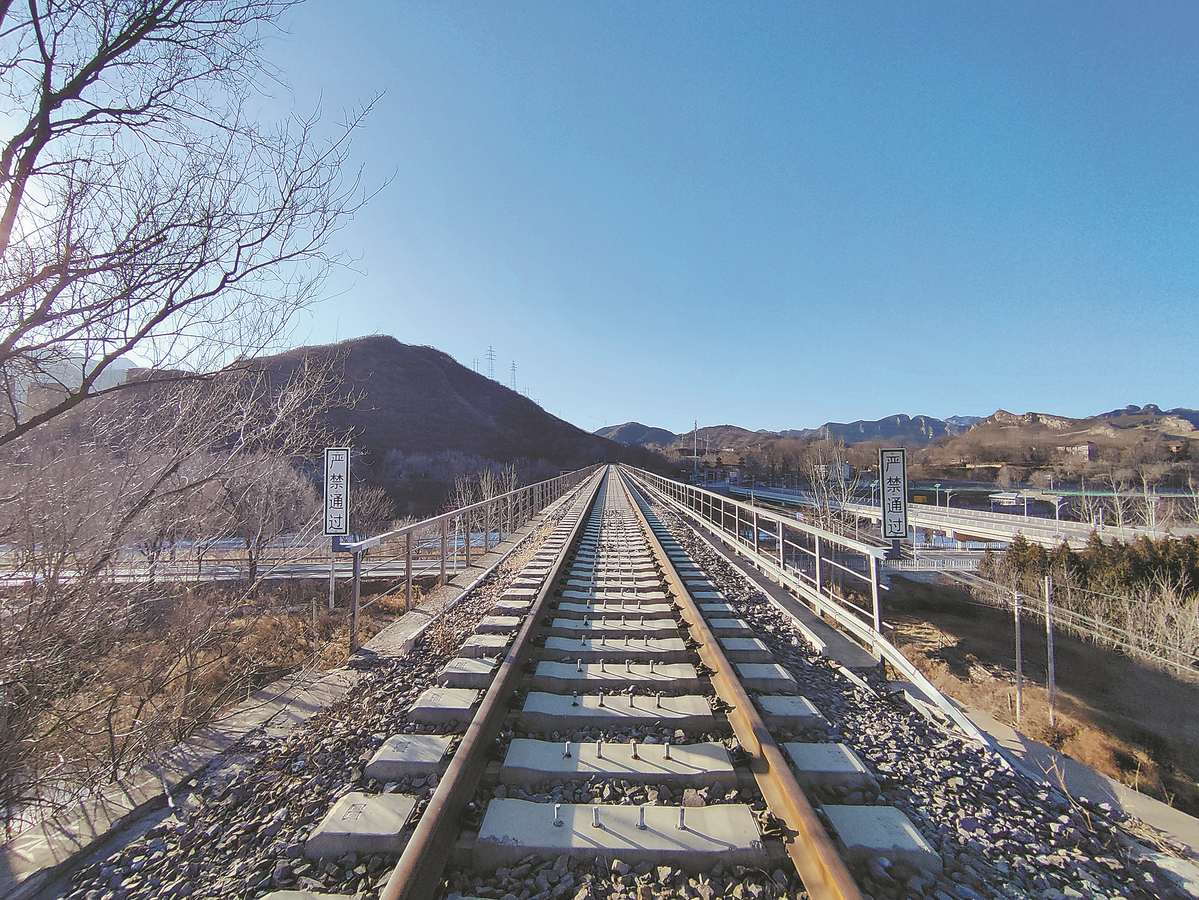Hikers take tracks to new adventures
Disused rail lines in Beijing becoming increasingly popular


Numerous outdoor enthusiasts enjoy hiking beside rivers or over mountain ranges, but rarely consider walking along railway lines, which is generally thought to be dangerous.
However, such lines that are no longer in use may make them think again.
For example, the 53-kilometer Beijing Mentougou Railway was abandoned in the early 2000s. The line was established in 1906 by Zhan Tianyou, known as the "Father of China's railway", to transport goods between downtown Beijing and Mentougou district in the west of the city.
In recent decades, more hikers, including those living in urban areas, have become interested in walking along deserted lines like this one to enjoy scenery vastly different from that found elsewhere.
Ren Jing, who was born in the 1980s, is a native of Beijing and works in the media industry, said that in her spare time, she loves to visit places where there are relatively few people.
In November, she hiked along a 10-km section of the Beijing Mentougou Railway, taking a detour to villages because tunnels along the line were destroyed during heavy rainfall in August.
"This is actually the fun of outdoor activities. There is always a road to hike on, but when an unexpected situation such as this (strong rain leaving tunnels impassable) occurs, you can always take a new route," Ren said.
Her interest in hiking was triggered by the novel Grave Robbers' Chronicles, in which author Nanpai Sanshu, whose real name is Xu Lei, describes several fictional places that have counterparts on the Chinese mainland. They include Changbai Mountain in Jilin province, Hero Mountain in Shandong province, and Siguniang Mountain in Sichuan province. Since 2003, Ren has visited each of these locations to check them off her list.
"During the COVID-19 pandemic, I couldn't go on long trips, but visited scenic areas around Beijing instead," she said, adding that she used to go to western Sichuan every year during the May Day and National Day holidays to climb mountains.
"I enjoy the thrill of hiking at altitude on snow-capped mountains. On the plateau, your breathing becomes faster, which is different from the fatigue you experience on the plains," Ren said.
"As your heart rate accelerates, dopamine is released. You feel excited, unlike the feeling on the plains, which is mainly induced by exhaustion," she added.
Hiking along the Beijing Mentougou Railway, which passes through a series of tunnels, has given her a new experience. "Walking on the path inside a tunnel is also something I would like to try," Ren said.
Railway hiking has provided her with a clearer insight into how sudden changes in the weather have a significant impact on the environment and nature.
"The railway's track bed consists of individual wooden sleepers, but on many sections, the wood has clearly been severely damaged by rainwater," Ren said.
The stone foundations under the tracks have also been affected by water infiltration, she added.
At the end of July, when Typhoon Doksuri headed toward the North China Plain and battered suburban and downtown areas of Beijing, residents in the western districts of Fangshan and Mentougou were the most badly hit.
The heavy rain in the Chinese capital caused by the typhoon lasted for about 92 hours, making it the most severe rainfall recorded by meteorological instruments in the city for the past 140 years, Beijing News reported.
Flash floods and landslides triggered by the rain left at least 33 people dead, rail tracks broken, homes collapsed, and electric cables severed.
The rainfall in Fangshan and Mentougou was nearly double the citywide average, the Beijing Meteorological Service said. Western Beijing, which is home to mountains and rivers, was the hardest-hit area of the city during this extreme weather event.
Ren said, "As the sleepers on the rail tracks were broken, I took a detour of nearly 3 kilometers from a tunnel after already having walked for 8 kilometers."
The new route provided her with fresh findings. On reaching Dingjiatan village, about two-thirds of the way along her hiking trail, Chinese roses were still blooming in the wind in early winter. For Ren, this unexpected sight evoked a special connection between the railway and her surroundings.
She eventually arrived at Jiuyuan station, where she bought some pickles before heading home.
- Chinese airlines ramp up operations as travel rush gets underway
- Two cruise ships bring over 9,000 domestic, foreign tourists to Shanghai
- Shanghai legislators, political advisors suggest ways to attract more foreign travelers
- China aims for more ambitious space missions in 2025
- Beijing to add 20,000 primary and secondary school seats in 2025
- Highlights of Inner Mongolia Government Work Report unveiled





































